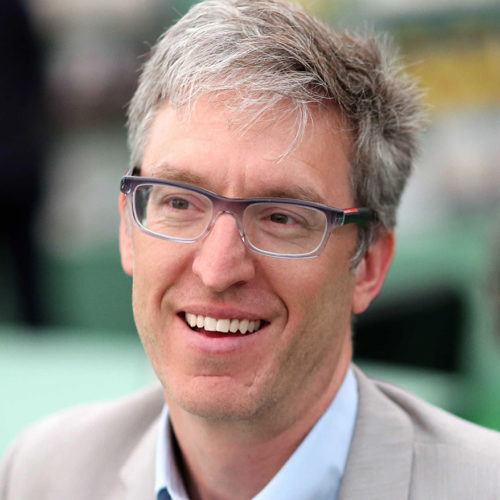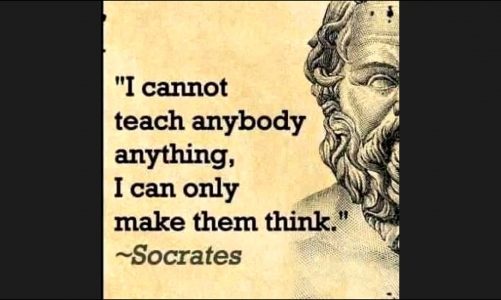Steven Levitt is a professor of economics at the University of Chicago and the co-author of the bestselling book Freakonomics and its two sequels. In this episode, Steve discusses his unlikely path to a career in economics and his view of the current state, and limitations, of the field. He also gives his unique perspective on contemporary issues including climate change, mental health in education, how to evaluate whether an experiment is ethical, decision making, horse racing, and much more.
Subscribe on: APPLE PODCASTS | RSS | GOOGLE | OVERCAST | STITCHER
We discuss:
- How Steve ended up in economics (2:45);
- Current trends in the field of economics: macro vs. micro, usefulness of models, and the relationship between data and theory (8:45);
- Revisiting what Steve wrote about climate change in SuperFreakonomics, and why it’s unlikely to be solved with behavioral change (18:45);
- The consequences of a blurred line between climate science and advocacy (27:30);
- Answering climate questions with a “Manhattan Project for climate change” (31:45);
- Steve’s reflections on his career path and how he found his way by being himself (40:00);
- How Steve came to write Freakonomics (and its sequels), and the topics which caused the most controversy (53:00);
- How Steve came to appreciate mental health through parenting, and the need to emphasize mental health into the education system (1:10:15);
- Why people are bad at making decisions (1:26:45);
- Deliberating on why horse racing times haven’t advance much in decades (1:34:30);
- Reducing the impact of negative emotions by observing the world free of language (1:44:00);
- Changing our thinking about what it means to conduct experiments ethically (1:49:00); and
- More.
§
How Steve ended up in economics [2:45]
- Steve was not interested in economics
- At Harvard, he sought out the courses most students took because they were easy, and the introductory economics course was one
- During a lecture on comparative advantage, Steve was annoyed because he thought it was so obvious
- But the same lecture had confused his friend, so he realized that way of thinking came naturally to him
“It became clearer and clearer to me that I was just born thinking like an economist” —Steve Levitt
- Did management consulting but hated it, so got PhD in economics
- He feels lucky because his career ended up being the result of “a series of mistakes, miscalculations and ignorance”
Current trends in the field of economics: macro vs. micro, usefulness of models, and the relationship between data and theory [8:45]
Macroeconomics vs. microeconomics
- Macroeconomics
- What most people think of when they hear “economics”
- Things like inflation, banking, unemployment, economic growth
- Very complex and economists haven’t done a good job of understanding it
- Microeconomics
- Study of individual decision-making
- E.g., how people decide how to spend income, how one chooses a job and how many hours to work, etc.
- Can analyze with formal model based on rationality or newer models like behavioral economics that takes more psychology and mistakes into account
- Econ has traditionally been a theoretical discipline
- But now also econometrics, analyzing “messy” data
“Macro in the end is really complicated. . .very self-referential models because the problems are so hard that you need to abstract so greatly to try to deal with the macro problems that I think we don’t have a good handle on them. So I’ve really steered clear of the macro problems to focus on the individual decision-making, which is, I think, … much more relevant.” —Steve Levitt
Current trends in economics
- Two big prizes in econ are Nobel Prize and the John Bates Clark Medal (given to the most influential American economist under the age of 40)
- Steve won the Clark medal in 2003
- In the last 20-30 years, the Clark medal has gone to people who address the intersection of theory and data
Economics at a crossroads…
{end of show notes preview}

Steve Levitt, Ph.D.
Steven Levitt is the William B. Ogden Distinguished Service Professor of Economics at the University of Chicago as well as the Director of the Becker Center on Chicago Price Theory. In addition, he is the founding partner of The Greater Good Group (TGG) consulting firm. The co-author of the bestselling book Freakonomics and its two sequels, he won the John Bates Clark Medal (one of the highest honors in the economics field) in 2003. In 2006, Steve was named one of Time Magazine’s 100 People Who Shape Our World. He received his undergraduate degree from Harvard and his PhD from MIT.
Twitter: @Freakonomics
Facebook: Freakonomics
Website (including podcast): freakonomics.com
Academic website: https://economics.uchicago.edu/directory/steve-levitt


